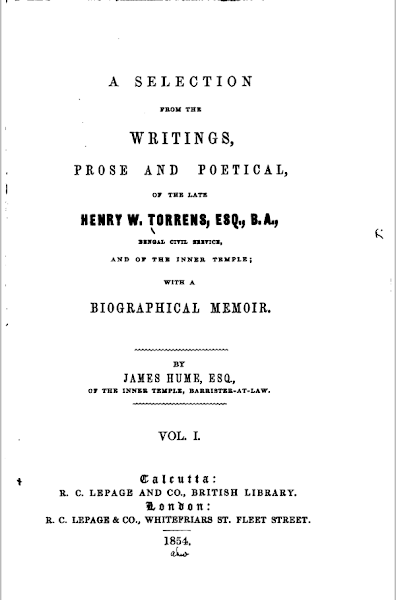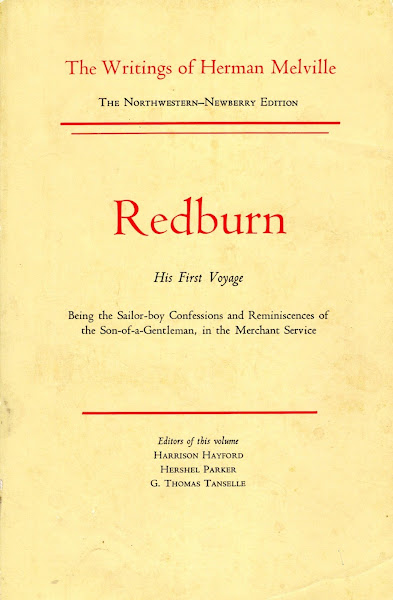A bit of wisdom here from Pierre Bourdieu:
Fast-thinkers ... think in clichés, in the "received ideas" that Flaubert talks about - banal, conventional, common ideas that are received generally. By the time they reach you, these ideas have already been received by everybody else, so reception is never a problem. But whether you're talking about a speech, a book, or a message on television, the major question of communication is whether the conditions for reception have been fulfilled: Does the person who's listening have the tools to decode what I'm saying?Like most people (I suppose), I used to worry about my inability to shine in contests of quick-flowing wit. I remember once meeting a friend who'd been at Graduate School in America, and had returned to New Zealand to show off some of what he'd become. The talk came thick and fast, with nary a space to insert a word of one's own, or query exactly what it was we were talking about.
When you transmit a "received idea," it's as if everything is set, and the problem solves itself. Communication is instantaneous because, in a sense, it has not occurred; or it only seems to have taken place. The exchange of commonplaces is communication with no content other than the fact of communication itself. The "commonplaces" that play such an enormous role in daily conversation work because everyone can ingest them immediately. Their very banality makes them something the speaker and the listener have in common.Now, however (thanks largely to Christine Howe), I worry about it less.
- Pierre Bourdieu, 'On Television' (1996/98)
[reference courtesy of Australian novelist Christine Howe, who quoted it at the 'Critical Futures' symposium I attended a couple of years ago at the University of Wollongong]
At one point the conversation with my friend-recently-returned-from-the-US shifted (for some reason I've now forgotten) to the detective novels of Dorothy Sayers. Now I'd read all of these, in sequence, on more than one occasion, and could easily have answered any random question on campanology or heraldry drawn from her books.
My friend dismissed her quickly with a wry reference to the naming of the evil surgeon Sir Julian Freke ("Freak" - get it?) in her very first novel, Whose Body?, as well as a claim that the book was anti-semitic, given that the murderer's victim was a wealthy financier called Sir Reuben Levy.
Now this seemed (and seems) - to me - rather a complex matter. The name of Sir Julian Freke had, to my mind, been carefully chosen to recall to the reader that most famous of British surgeons Sir Frederick Treves, discoverer (and promoter) of Joseph Merrick, the (so-called) "Elephant Man."
Treves certainly seems a far more sympathetic figure, so perhaps 'Freke' is supposed to hint at the Mr. Hyde-like double nature lurking in any God-like surgeon. Or perhaps Sayers knew more gossip about Treves than we do now.
As for the claims of anti-semitism, they don't seem to me to have that much behind them, gruesome though the details of this particular murder undoubtedly are. Certainly Freke is presented as being intensely anti-semitic.
The subject is canvassed interestingly in the Wikipedia article on Dorothy Sayers. Later, in 1936, when "a translator wanted 'to soften the thrusts against the Jews' in Whose Body?, Sayers, surprised, replied that the only characters 'treated in a favourable light were the Jews!'"
In other words: "How can I be a racist? Some of my best friends are [fill in as required ...]."
I guess the overall point I'm trying to make is that my friend, a fast thinker if ever there was one, was onto the next point before any real consideration could be given to this one, wrecked reputations left smoking in his wake. Dorothy Sayers - anti-semite; T. S. Eliot - anti-semite; Pound - Fascist ... and so on and so forth. A label for everyone and the mouth constantly moving on to new aperçus and subtleties: quick subtleties, mind you, so that no-one (such as myself) stoutly bringing up the rear, could be permitted any time to break down or examine the ideas presented.
Talking people down in this matter - battering down their resistance with a shower of facts and figures, flimsy literary and cultural parallels, and random contemporary events, is, of course, one of the more effective ways of ensuring victory in debate. On paper it can seem to work equally well just as long as no-one really reads what you write.
As long as they skate over it in the same way, and at the same speed, that you composed it, the knockdown argument is almost guaranteed.
I'm sorry to say that British cultural critic and historian Marina Warner does seem to me to exemplify some of these traits. Don't get me wrong: I've read a great many of her books, and have received much profit from them. They certainly cover many areas - European folklore and fairy-tales, Ovid's Metamorphoses and the Arabian Nights - which are of profound interest to me. And yet they continue to frustrate me, perhaps because of the speed at which her mind moves from subject to subject.
Here's a list of the books by her I own:
- The Dragon Empress: Life and Times of T’zu-hsi (1835-1908), Empress Dowager of China. 1972. London: Cardinal: 1974.
- Alone of All Her Sex: The Myth and the Cult of the Virgin Mary. 1975. London: Quartet Books, 1978.
- Joan of Arc: The Image of Female Heroism. 1981. Harmondsworth: Penguin, 1983.
- Monuments and Maidens: The Allegory of the Female Form. 1985. London: Vintage, 1996.
- The Mermaids in the Basement. 1993. London: Vintage, 1994.
- [Edited] Wonder Tales: Six Stories of Enchantment. Illustrated by Sophie Herxheimer. 1994. London: Vintage, 1996.
- From the Beast to the Blonde: On Fairy Tales and Their Tellers. 1994. London: Vintage, 1995.
- No Go the Bogeyman: Scaring, Lulling and Making Mock. 1998. London: Vintage, 2000.
- Fantastic Metamorphoses, Other Worlds: Ways of Telling the Self. 2002. Oxford: Oxford University Press, 2004.
- Signs & Wonders: Essays on Literature & Culture. 2003. London: Vintage, 2004.
- Stranger Magic: Charmed States & the Arabian Nights. 2011. Vintage Books. London: Random House, 2012.
As you can see, they're a eclectic bunch: history, fiction, literature, folklore ... She certainly covers a lot of ground.
Her ideas on transformation, cultural fluidity, gender roles, are all very persuasive, and tend to get quoted approvingly by other like-minded writers. But is she reliable? Can you trust her when it comes to tedious matters such as facts and dates?
Not always, I'm sorry to say. Let's take one small example:
In her introduction to the Folio Society's sumptuous six-volume edition of the Mardrus/Mathers translation of the Arabian Nights, she mentions that:
In the Victorian era, adventure-explorers such as Hugh Lane and Richard Burton, both ardent lovers of Araby, produced translations based on these Arabic compilations. Their editions reflect their own attachments: Hugh Lane's is stuffed full of ethnographical details of Old Cairo (some of it densely researched and nostalgic, other parts rather fanciful): Burton's version is an almost Chattertonian exercise in auncient tongues, prolix and rococo, and is also truffled with lore (much of it salacious, earning Burton his nickname, 'Dirty Dick.'). [p.xiv]But who is this "Hugh Lane" she is speaking of? There was a Hugh Lane (1875-1915), drowned by the sinking of the Lusitania, who is famous for having attempted to leave his priceless collection of impressionist paintings to his native country, Ireland, only to be rebuffed by the local Dublin authorities.
But the Lane Warner means is clearly Edward William Lane (1801-1876), who was indeed the first major translator of the Nights from Arabic into English. I don't think anyone has ever accused him of writing especially "nostalgically" about "Old Cairo", though - let alone "fancifully". On the contrary, his classic work on the Manners and Customs of the Modern Egyptians (1836), remains a most informative and detailed guide to the city, compiled - as it was - in consultation with a number of local Sheikhs. His main claim to fame, however, is the comprehensive Arabic-English Lexicon, which occupied him from 1842 until his death.
Warner is on safer ground with Richard F. Burton. Her description of his work as a "Chattertonian exercise in auncient tongues" is certainly accurate enough. Fans of his version - such as myself - may feel a little affronted by her casual dismissal of this massive labour of love, but she is (of course) perfectly entitled to her opinion, which is by no means an uncommon one.
A few years later, in her book Stranger Magic, she admitted having mainly relied on the most recent French translation of the Nights - by Jamel Eddine Bencheikh and André Miquel, 3 vols (Bibliothèque de la Pléiade, 2005-7) - in preference to any of the English ones. Had she actually read them? She certainly implies as much. Here, for instance, is her revised version of the paragraph quoted above:
In the Victorian era, adventure-explorers such as Edward W. Lane and Richard Burton, both ardent Arabophiles, produced translations that reflected their own attachments. Lane's, published in 1838-41, followed close on the heels of his ethnographical description of contemporary Cairo (The Manners and Customs of the Modern Egyptians, 1835); Lane added a huge apparatus of notes on Arab Society (some of it densely researched and nostalgic, other parts rather fanciful). The three-volume set of 1850 includes 600 engravings based on Lane's experiences in Cairo; my copy, which came originally from my great-grandmother's library, is one of the few books that I've owned and read since I was a child, and though it is pretty fustian, with Lane tranquillising so much of the book's agitated emotions and adventures, it is readable to a degree that Richard Burton's lurid and archaising version, made fifty years later, never reaches. [p.18]It's not for me to cast any doubt on the passage referring to her childhood reading of Lane. It just seems a bit odd that someone who didn't even know (or bother to check) his first name a decade before, should treasure a copy of his translation as "one of the few books that I've owned and read since I was a child."
The snap judgements of the first version of the passage remain - "rather fanciful," "translations that reflected their own attachments" - though she has softened some of the more egregious epithets: "lovers of Araby" has become "Arabophiles", and Burton's version is now "lurid and archaising" rather than "an almost Chattertonian exercise in auncient tongues, prolix and rococo ... truffled with lore (much of it salacious ...)."
I certainly don't question Warner's choice of texts to base her discussion on. I, too, am an admirer of the wonderful new French translation: It's just difficult to continue to believe in the reliability of a scholar who was hazy about E. W. Lane's first name - and certainly seems never to have read extensively in Burton's work - as a reliable guide to the intricacies of one of the world's longest books, with a complex textual history which spans cultures and continents as well as millennia of analogues.
In other words, beguiling as so many of Warner's generalisations and juxtapositions are, none of her statements - especially those centred around dates and names - can be trusted without further research. Which is really not much use. Even historical and cultural popularisers (a very worthwhile calling, IMHO) should be careful to check their facts. What exactly are they popularising, otherwise?
My final exhibit is the book Ghostwriting Modernism, by Auckland University Academic Helen Sword. Like Warner's, Sword's pages are plastered her pages with allusions and lists of possible parallels. Unlike Warner's, though, her notes are a carefully composed repository of bibliographical leads and further information.
In terms of readability, it's probably no accident that Warner's book flew off the shelves whereas Sword's is obtainable only in university libraries and from specialist booksellers. If it weren't for my fascination with its subject-matter - the manifestation of spiritualist tropes in such canonical authors as Joyce, Yeats, Eliot, H. D., Plath and Hughes - I probably wouldn't have bothered to read it myself.
But, having now done so, I've shelved it close to hand for further consultation. This is a book which is more than the sum of its parts. It opens perspectives on masses of further work on such fascinating exhibits as James Merrill's Ouija-board epic The Changing Light at Sandover, or the spirit messages from dead RAF pilots which H. D. collected in the latter years of the Second World War, which have proved such an embarrassment to many of her admirers.
Everyone already knew that Yeats was a convinced Occultist, but simply collecting - in convenient form - so much data on the phenomena of 'ghostliness' in such mainstream twentieth century writers makes it almost impossible to continue to sideline it as some kind of individual aberration on the part of each of them.
That's not to say that there isn't something a bit loony about Sylvia and Ted crouched over the Ouija board receiving messages from the great unknown. But it certainly isn't nearly as odd and uncommon as many critics would like to believe. Did they do it, like Yeats, to access new "metaphors for poetry"? Or was it something more serious for them? All this, and much more, is discussed judiciously, and with ample cross-referencing, by Helen Sword.
Fast-thinkers or Ghostwriters? So many books now fall into the first category, I'm afraid. You start to read them, only to become gradually aware that they're little more than condensations of the idées reçues [received ideas] mocked so thoroughly by Flaubert in the "Dictionnaire des idées reçues" in his posthumous novel Bouvard et Pécuchet (1881). The research is sloppy and second-hand, the editing perfunctory, and the whole thing a mere "interruption to our studies," in A. E. Housman's devastating phrase.
Think of all those war books which keep on flopping out year after year: Martin Middlebrook's The First Day on the Somme (1971) was regarded as a seminal and revisionist work when it first appeared some fifty years ago now. Now, of course, further research has thrown in doubt many of its conclusions, but do we really need successive legions of books with more or less the same title, gloatingly recounting the same devastating events?
There's a furtive voyeurism about the worst of these books. They look like real books - their publishers try hard to make them resemble genuine historical works - but actually they're just rehashes of the same tired clichés. How many hacks have written books designed to show that Sir Douglas Haig was a great general, a genius on the level of Napoleon or Marlborough? He won, didn't he? And he was British, after all.
The trouble is that the real books concealed in this crimson tide of white noise, those based on real research and genuine new thinking, increasingly seldom emerge from the ruck. Ghostwriting Modernism is such a book. It's not perfect by any means - but it's certainly based on careful reading over many years. Stranger Magic, despite all the extravagant encomia reprinted on its cover ("a flying carpet of a book" - Jeanette Winterson), is, I'm afraid, not. It's hard, even, to say what it's actually about. Does it have a point? Or a theme? If so, I'm not really clear what it is, despite having read it assiduously from cover to cover.
And, when it comes to new books about the Arabian Nights, I can assure you that I'm not a particularly critical reader. Pretty much any and all authors of such can rely on me as a captive audience!
•



















































